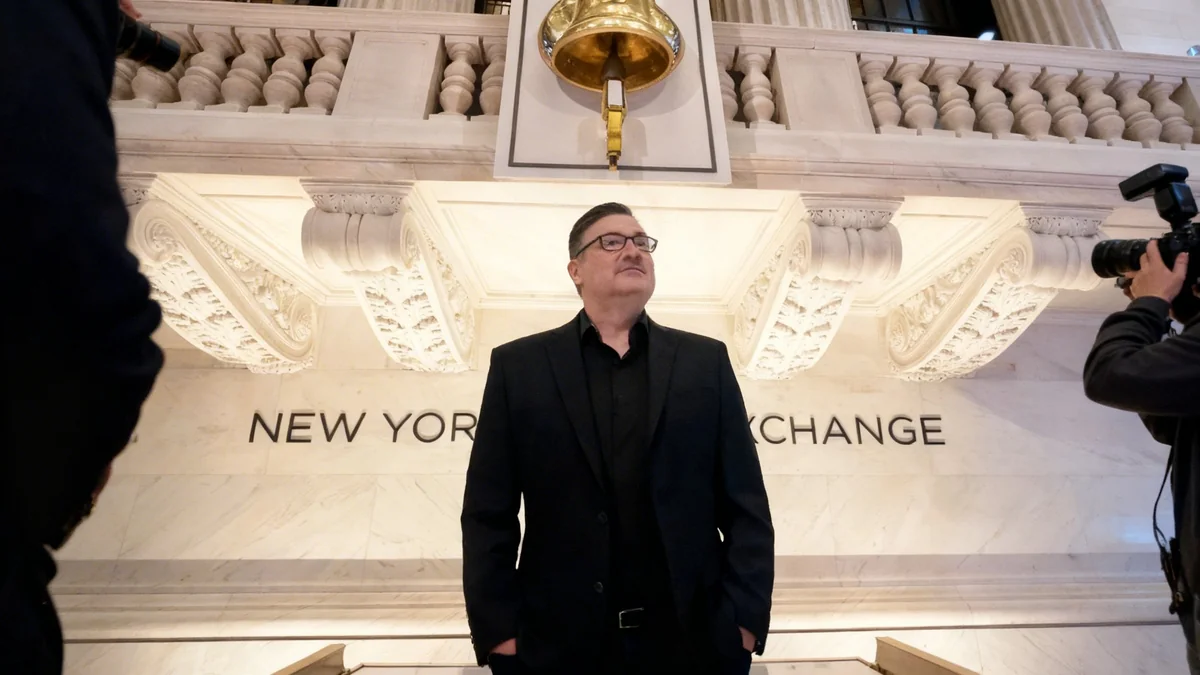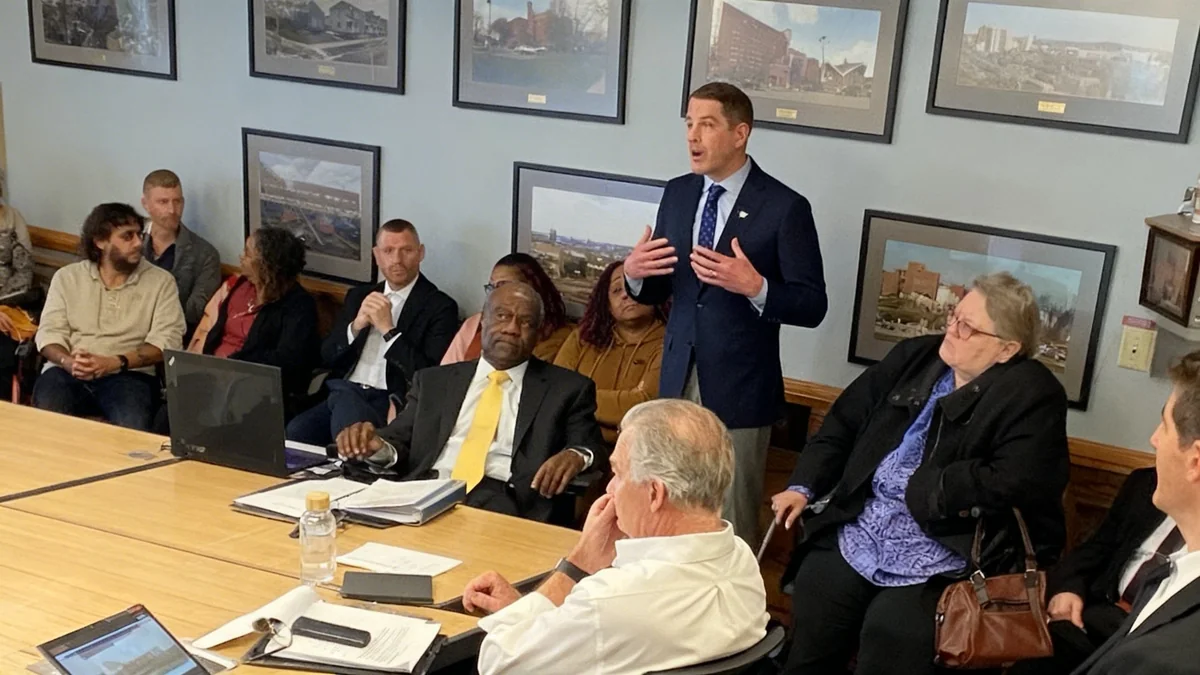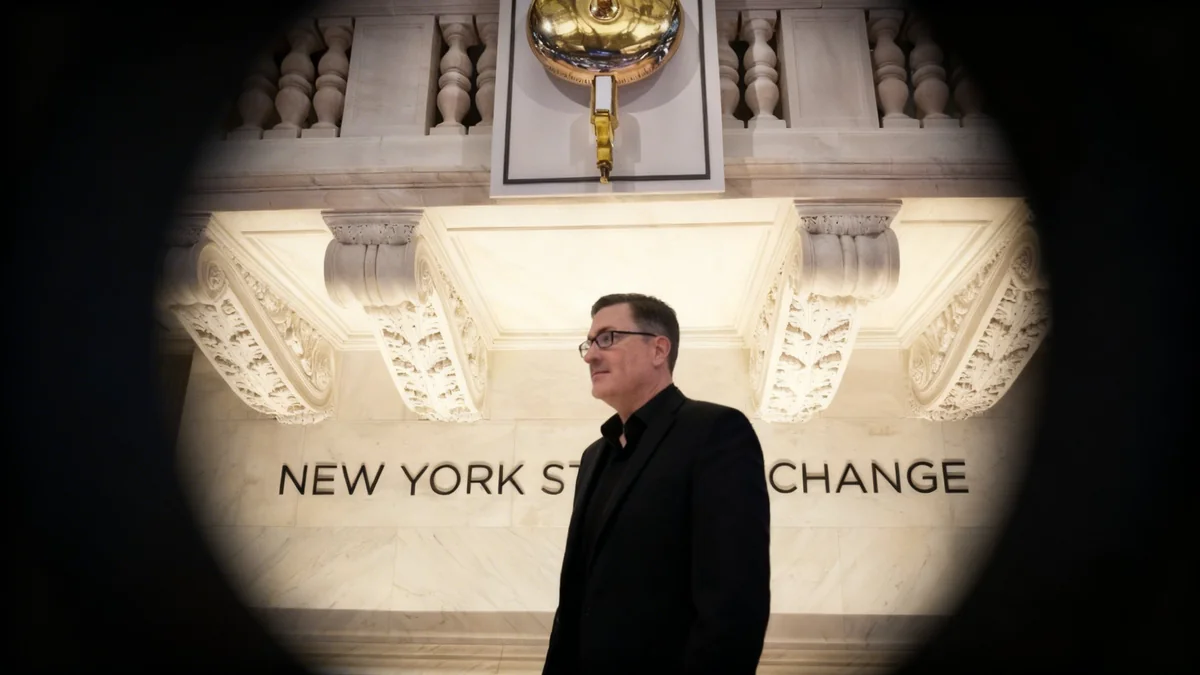State officials and MassBay Community College leaders faced a series of questions from Wellesley residents during a public meeting about a proposed housing development on state-owned land. The meeting, held to gather community feedback, highlighted local concerns regarding the project's potential impact on the neighborhood surrounding the college's Oakland Street campus.
The discussion, which took place on October 8, was the second such forum designed to engage the public on the plan. It brought together key decision-makers and a vocal group of residents, underscoring the complexities of developing new housing in established suburban communities.
Key Takeaways
- A housing development is proposed for state-owned land opposite MassBay Community College in Wellesley.
- A community meeting was co-hosted by MassBay and the state's Division of Capital Asset Management and Maintenance (DCAMM) to solicit resident feedback.
- Key officials from MassBay, DCAMM, and the Massachusetts Executive Office of Housing & Livable Communities were present to answer questions.
- Residents expressed significant concerns about the project's potential effects on local traffic, infrastructure, and neighborhood character.
State Officials and College Host Public Forum
MassBay Community College and the Division of Capital Asset Management and Maintenance (DCAMM) jointly organized a community meeting on Wednesday, October 8. The event was held in the library atrium of the college, providing a direct venue for local residents to engage with the project's proponents.
The primary agenda was to discuss a proposal to build a new housing development on state land located across from the MassBay campus on Oakland Street. This meeting marked the second official effort to gather public input, signaling an early but crucial stage in the planning process.
A panel of officials was present to field questions and hear feedback. This included MassBay President David Podell, who represented the college's interest in the project. He was joined by Abby Vladeck, the acting Deputy Commissioner of Real Estate for DCAMM, the agency that manages state properties, and Eric Shupin, Deputy Chief of Staff for the Massachusetts Executive Office of Housing & Livable Communities.
A Well-Attended and Engaged Meeting
The event drew a significant and passionate crowd of Wellesley residents. Many attendees arrived prepared to voice their opinions and seek clarity on the scope and implications of the proposed development. The atmosphere was described as engaged, with community members actively participating in the dialogue.
The presence of high-level state officials indicated the seriousness of the proposal and the state's role in addressing Massachusetts' ongoing housing needs. However, for many residents, the focus was squarely on the local consequences of such a project.
Context: State Land for Housing Initiative
This proposal is part of a broader statewide initiative in Massachusetts to identify and utilize underused state-owned land for the development of new housing. The goal is to help alleviate the state's housing shortage by creating more residential units, including affordable options, in communities with strong school districts and high quality of life, such as Wellesley.
Anticipated Community Concerns Take Center Stage
While the original report did not detail specific complaints, developments of this nature in suburban communities like Wellesley typically face a consistent set of concerns from residents. The public forum was a platform for these issues to be raised directly with the decision-makers.
Common points of contention in similar projects often include:
- Increased Traffic Congestion: Residents frequently worry that adding a new housing complex will lead to more cars on local roads, particularly on key thoroughfares like Oakland Street, potentially causing daily traffic jams and safety issues.
- Strain on Public Services: Another major concern is the potential burden on municipal resources. This includes questions about whether local schools can handle an influx of new students and if police and fire departments are equipped for an expanded population.
- Environmental Impact: The development of open land often raises questions about the loss of green space, the effect on local wildlife, and issues related to water drainage and conservation.
- Neighborhood Character and Density: Many residents express a desire to preserve the existing character of their neighborhoods. Concerns are often voiced that a large-scale housing development could introduce a level of density that feels out of place with the surrounding single-family homes.
These topics were likely at the forefront of the discussion as residents sought assurances from the panel that the project would not negatively alter their community.
Wellesley Demographics and Housing
According to the U.S. Census Bureau, Wellesley is an affluent town with a median household income significantly higher than the state average. The median value of owner-occupied housing units is also among the highest in Massachusetts. This economic landscape often makes the introduction of new, potentially denser or more affordable housing a sensitive topic for local homeowners.
The Role of Key State and College Officials
The panel of officials at the meeting represented the different stakeholders involved in moving the project forward. Their presence allowed for a multi-faceted discussion, with each bringing a unique perspective to the table.
Perspectives from the Panel
David Podell, President of MassBay, likely addressed the college's potential benefits from the development, which could include housing for students or faculty, or other forms of partnership that support the institution's mission. Community colleges often struggle with providing affordable housing options for their populations.
Representing DCAMM, Abby Vladeck was responsible for explaining the state's process for managing its real estate assets. Her role would involve detailing the legal and logistical steps required to approve and develop the land, as well as the state's objectives for the site.
"Public engagement is a critical part of the process for any development on state-owned land. Hearing directly from residents helps us understand the local context and identify potential challenges early on," is a sentiment often expressed by DCAMM officials in such meetings.
Eric Shupin, from the Executive Office of Housing & Livable Communities, would have provided the broader policy context. His role would be to connect the Wellesley proposal to Governor Maura Healey's administration's goals of increasing housing production across the Commonwealth to address the statewide affordability crisis.
Next Steps in the Development Process
Following a community feedback session like this one, the project's proponents typically review the input received. DCAMM and its partners will likely use the residents' concerns to refine the proposal before moving to more formal stages of planning and approval.
Future steps will probably involve more detailed studies on traffic impact, environmental assessments, and fiscal analysis of the project's effect on town services. Further public meetings will likely be scheduled as the plan evolves and more concrete details become available.
For Wellesley residents, the October 8 meeting was an important opportunity to ensure their voices were heard at the outset of a project that could significantly shape the future of their neighborhood. The state's response to their concerns will be closely watched as the proposal moves forward.





